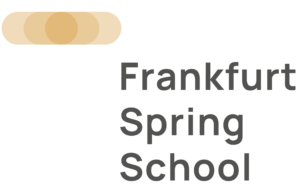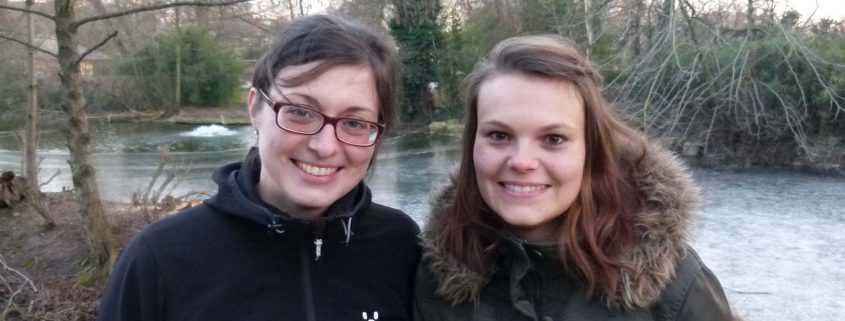Stories From Our Students 2018 – Week 1
With the first week of the 2018 Frankfurt Spring School on Conservation Project Management already behind us, we talked to two of our students, Claudia Hermes and Zsófia Puskás, to hear about why our students are here and what they’ve learnt so far.
What is your background prior to arriving at Spring School 2018?
Claudia: “I come from Freiburg, where I finished my PhD thesis last year, working on nature conservation in Ecuador.”
Zsófia: “I come from Vienna, I studied wildlife ecology and game management and finished my master thesis last year which was about wild boar population dynamics and management.”
What are your motivations for attending Spring School 2018? Is there anything in particular you’re hoping to gain?
Claudia: “I came to the Spring School to gain some insights into how a conservation project is actually run. So far, I have been involved in carrying out research on conservation problems, but I am wondering what all my scientific results are actually worth if they are not applied in an actual conservation project. I hope that the skills I am going to learn at the Spring School help me to set up practical projects to conserve biodiversity, which hopefully contribute to making a change.”
Zsófia: “I applied for the Spring School on Conservation Project Management, because I am motivated to do something for nature conservation. This Spring School is a great opportunity to be more competent and improve my chances to find a job in nature conservation.”
How did you find the first week of this year’s event?
Claudia: “The module on project planning was seriously great. Martin and Nick are great teachers. I sometimes came across things like problem trees and logical frameworks which I had never really understood before, and after this module I not only understand them, but I’m also able to create them myself!”
Zsófia: “This module made so much clearer what I have done wrong in the past because it has never been taught. I found it really great not just giving us the theory of “how to make it” but asking us to actively do the task in the real time. We challenged our minds to think logically and worked in a group to find out what the problems and solutions were. Learning by doing is the best practice anyway and I really enjoyed it.”
Thanks to Martin Davies, Nick Folkard and all of our students for a fantastic first week! After a well earned rest we’ll get right into week two.

 - Ben Evans
- Ben Evans -Daniel Rosengren
-Daniel Rosengren Ben Evans
Ben Evans